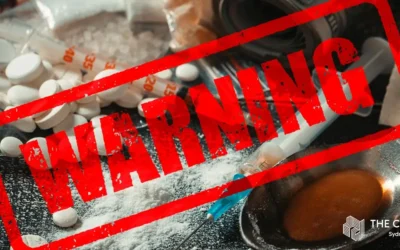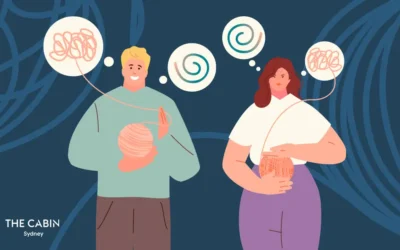High rates of methamphetamine addiction in Australia are proving too much for treatment facilities to handle – addicts are dying while on a waitlist for treatment.

Australia is facing a dangerous shortage of addiction treatment facilities, with waiting lists for inpatient beds often months long. This leaves many people with no idea how to quit their addiction, which without timely treatment could lead to compounded problems and even death. While many factors are involved in the current crisis, many attribute the current addiction treatment shortage to the ice epidemic currently plaguing the nation.
Australia’s “Ice” Epidemic
In the past few years, crystal meth use and subsequent addiction has increased dramatically in Australia, leaving communities devastated and officials calling for action. However, without available and effective treatment options the problems associated with ice use and abuse are bound to continue and even get worse.
Crystal methamphetamine or “ice” is a highly addictive drug that has become popular due to its affordability, accessibility, and initial ability to make users feel invincible. But the high that draws people in is brief, and addiction quickly follows. Once addicted, meth use causes a myriad of negative consequences with users becoming paranoid, violent, and psychotic due to lack of sleep and the drug’s powerful effect on the brain.
Recently, emergency rooms are seeing twice as many ambulances sent out on meth-related calls, and overdose deaths due to ice are second only to heroin. Officials state that ice currently poses the highest risk of all illicit drugs in Australia. Violence, homicide, and criminality are the most severe effects of meth abuse, but as with any drug addiction individuals’ lives are torn apart as they experience multiple emotional, physical, and social consequences due to their addiction.
Officials state that battling the ice epidemic will take large investments and cannot rest solely on law enforcement’s interruption of production and distribution of the drug. In order for production and distribution to decrease, demand needs to decrease — which means rehabilitating current users, and educating families and youth on the dangers of meth.
Unfortunately, despite efforts, Australian society and addiction treatment programmes are not equipped to handle the current need for effective treatment that promotes full addiction recovery. While harm reduction measures can be helpful in the short term, they will not address the full scale of the ice problem — only through rehabilitation and prevention will society start to see a long-term decrease in use and its associated problems.
Effects of Australia’s Addiction Treatment Shortage
Lack of available treatment options while the country is experiencing addiction rates higher than ever before — has wide reaching consequences. Addiction, like any disease, is easiest to treat when detected early — but currently in Australia, early treatment is difficult to secure.
One doctor describes spending hours without success, on the phone, trying to place a 23-year-old addict who was ordered to treatment by the court. Some waiting lists were so long they were no longer accepting applicants. St Vincent’s Hospital in Sydney, one of the nation’s leading drug rehabilitation centres, has a waiting list 100 people long — and other treatment centres are booked out for months.
In addition to increased need, funding cuts and staff shortages of current psychiatric and addiction treatment facilities are partially to blame for the shortage.
Prolonged meth use is known to contribute to drug-induced psychosis. As meth addiction ravages the nation, many people may need a stay in a psychiatric hospital to stabilise before they can begin addiction treatment.
However, psychiatric beds are also being reduced across the country, which means that hospital space is available only as a last resort. Because of this shortage of available resources, people are only being offered help after a serious incident, rather than early on — in an effort to prevent further danger for the addict and the people around them.
Psychiatric bed space is dwindling, and addiction treatment centres are overloaded. Treatment providers at Sydney’s Odyssey House say that they are now seeing more people present with meth as their primary addiction than alcohol. With a high demand for space, once people enter treatment they are not receiving it for as long as necessary to successfully achieve long-term addiction recovery. People are waiting months to enter treatment and meanwhile delving further into the addictive cycle and court systems.
Putting further strain on the available addiction treatment systems, courts are directing non-violent meth users to court-ordered drug rehab. While well intentioned as a way to get people struggling with addiction the help they need rather than criminalising them, there are simply not enough resources available to accommodate. This leaves people suffering from all sorts of addictions, not just ice addiction, left with nowhere to turn.
Other Addiction Treatment Options
While the nation is currently proposing investing $7 million into new stimulant addiction treatment facilities, it may not come soon enough. With hospital space scarce, some in need of critical medical treatment may be sent to the UK if they cannot receive it locally.
The Cabin Addiction Services Group, a world leader in addiction treatment based in Chiang Mai, Thailand has recently extended their services to Sydney, Australia. As of July 1, 2015 The Cabin Sydney signifies the first multinational addiction treatment centre to enter the Australian market.
Offering an initial assessment, The Cabin Sydney brings innovative and proven-effective treatment techniques administered by a team of experienced counsellors and addiction specialists to Australia. The Sydney outpatient programme makes it possible for those suffering from substance addictions (drugs or alcohol), or process addictions (gambling, sex, internet, food) to get the help they need amidst this crisis wiping the nation.
The Cabin Addiction Services Group has been treating addiction for many years with great success. If you or someone you know is suffering from addiction, please contact us for your free initial assessment.


